The MacDiarmid Institute for Advanced Materials and Nanotechnology is a New Zealand Centre of Research Excellence (CoRE) specialising in materials science and nanotechnology. It is hosted by Victoria University of Wellington, and is a collaboration between five universities and two Crown Research Institutes.

The Rutherford Medal is the most prestigious award offered by the Royal Society of New Zealand, consisting of a medal and prize of $100,000. It is awarded at the request of the New Zealand Government to recognize exceptional contributions to the advancement and promotion of public awareness, knowledge and understanding in addition to eminent research or technological practice by a person or group in any field of science, mathematics, social science, or technology. It is funded by the New Zealand government and awarded annually.

Vicki Cathryn Hyde is a New Zealand science writer and editor, and former chair-entity of the New Zealand Skeptics. She is co-owner with her husband Peter of a New Zealand-based software and web development company, Webcentre Ltd.

Sir Paul Terence Callaghan was a New Zealand physicist who, as the founding director of the MacDiarmid Institute for Advanced Materials and Nanotechnology at Victoria University of Wellington, held the position of Alan MacDiarmid Professor of Physical Sciences and was President of the International Society of Magnetic Resonance.
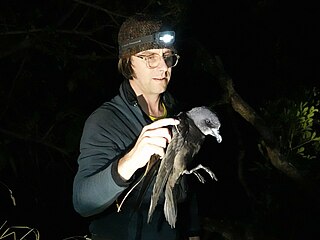
James Charles Russell is a New Zealand conservation biologist and professor at the University of Auckland.

Christine Coe Winterbourn is a New Zealand biochemist. She is a professor of pathology at the University of Otago, Christchurch. Her research in the biological chemistry of free radicals earned her the 2011 Rutherford Medal and the Marsden Medal, the top awards from each of New Zealand's two top science bodies.

Dame Margaret Anne Brimble is a New Zealand chemist. Her research has included investigations of shellfish toxins and means to treat brain injuries.

Dame Juliet Ann Gerrard is a New Zealand biochemistry academic. She is a professor at the University of Auckland and the New Zealand Prime Minister's Chief Science Advisor.

Dame Alcyion Cynthia Kiro is a New Zealand public-health academic, administrator, and advocate, who has been serving as the 22nd governor-general of New Zealand since 21 October 2021. Kiro is the first Māori woman and the third person of Māori descent to hold the office.
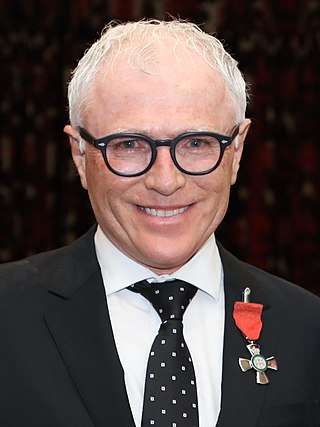
Michael George Baker is a New Zeland epidemiologist. He is a professor of public health at the University of Otago. Baker has worked as an advisor and member of multiple organisations. Notably, Baker is a member of the New Zealand Food Safety Authority's Academy and of the New Zealand Ministry of Health's Pandemic Influenza Technical Advisory Group (PITAG).

Victoria Metcalf is an Antarctic researcher based in New Zealand, best known for her work on Antarctic fishes and invertebrates. She was awarded the 2006 Zonta Science Award.
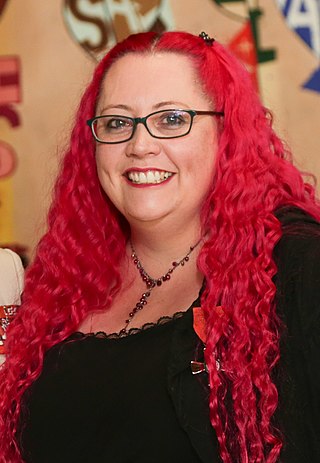
Siouxsie Wiles is a British microbiologist and science communicator. Her specialist areas are infectious diseases and bioluminescence. She is based in New Zealand.

Wendy Alison Nelson is a New Zealand marine scientist and world expert in phycology. She is New Zealand's leading authority on seaweeds. Nelson is particularly interested in the biosystematics of seaweeds/macroalgae of New Zealand, with research on floristics, evolution and phylogeny, as well as ecology, and life history studies of marine algae. Recently she has worked on the systematics and biology of red algae including coralline algae, distribution and diversity of seaweeds in harbours and soft sediment habitats, and seaweeds of the Ross Sea and Balleny Islands.
The Prime Minister's Science Prizes are awarded yearly by the Prime Minister of New Zealand. They were first awarded in 2009 in order to raise the profile and prestige of science among New Zealanders. The 2019 awards were presented in early 2020.
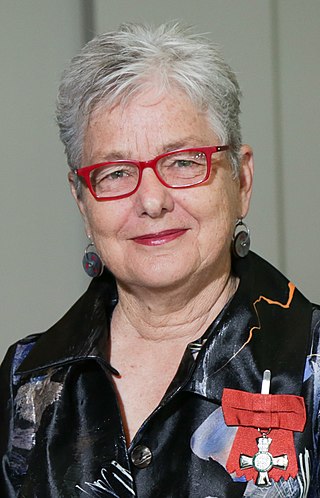
Barbara Alison Jones is a New Zealand academic who works in the field of sociology of education. She is the great-great-great granddaughter of Andrew Buchanan, New Zealand politician 1862–1874; great-great granddaughter of William Baldwin New Zealand politician 1863–1867; great granddaughter of Admiral William Oswald Story of the British Royal Navy. She has two sons, Finn McCahon Jones and Frey McCahon Jones
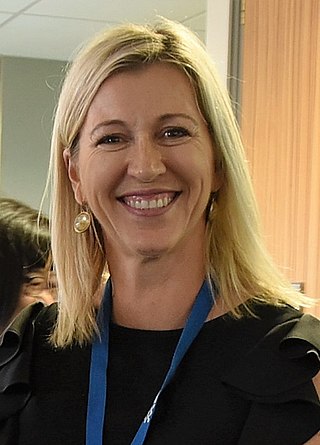
Merryn Tawhai is a New Zealand engineering scientist. She is a professor at the University of Auckland, director of the Auckland Bioengineering Institute, where she was a fellow from 2002, and a former director of MedTech CoRE. She is known for the development of mathematical models of the lungs that will help scientists understand differences between physiologically normal lungs and the pathological changes that might occur in a disease. She was inducted into the International Academy of Medical and Biological Engineering in June 2018. In November 2018, Tawhai was elected a Fellow of the Royal Society of New Zealand.

Tracey Kathleen Dorothy McIntosh is a New Zealand sociology and criminology academic. She is of Māori descent and is currently a Professor of Indigenous Studies and Co-Head of Te Wānanga o Waipapa at the University of Auckland.

James Arthur RenwickCRSNZ is a New Zealand weather and climate researcher. He is professor of physical geography at Victoria University of Wellington, specialising in large-scale climate variations. He was awarded the 2018 New Zealand Prime Minister's Science Prize for Communication by Jacinda Ardern.

Shaun Cameron Hendy is a New Zealand physicist. He is the chief scientist at climate innovation company Toha. He was previously a professor at the University of Auckland and was the first director of Te Pūnaha Matatini, a centre of research excellence in complex systems and data analytics. During the COVID-19 pandemic in New Zealand, he led a team of scientists developing mathematical models of the spread of the virus across the country that influenced the government's response to the outbreak.
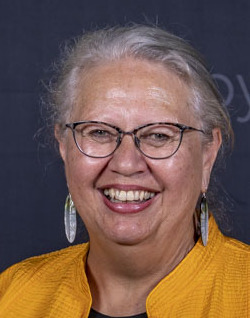
Yvonne Jasmine Te Ruki Rangi o Tangaroa Underhill is a New Zealand Pacific development geographer. She is a professor at the University of Auckland, where she teaches Pacific studies.


















